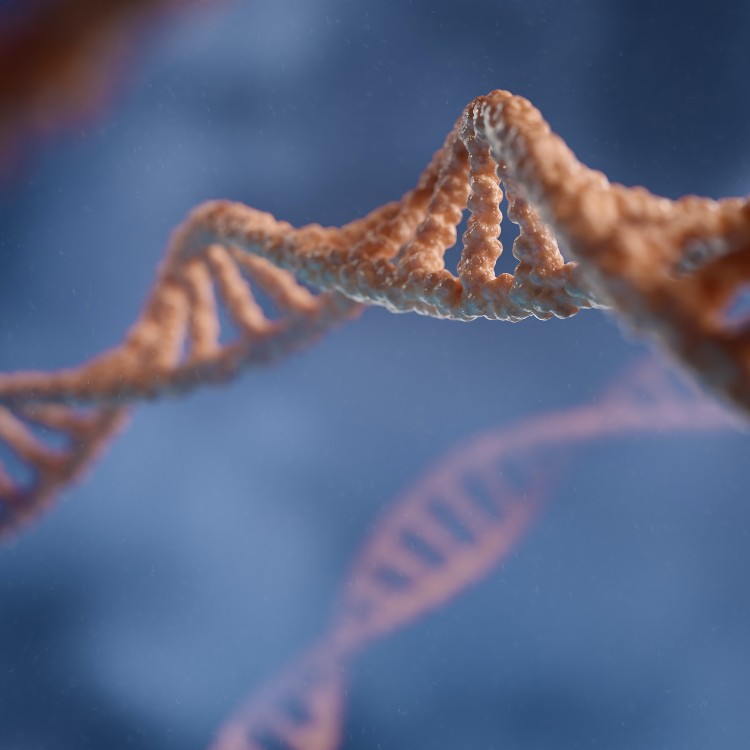
Role of Telomerase Inhibitors in Aging and Cancer
What is telomerase, and what is a telomerase inhibitor? To answer these questions, we must start from the very beginning – from understanding telomeres. Stay tuned until the end of this guide to learn more.
What Are Telomeres?
Telomeres are repetitive DNA sequences located at the ends of linear chromosomes. They serve as protective caps that prevent the gradual shortening of genetic material during cell division. As plastic tips on shoelaces, they preserve the integrity and stability of chromosomes.
Telomeres are a good indicator of cellular age, as their length diminishes with each cell division. When they are so short that they cannot shorten any more, it comes to cell death. Enzymes called telomerase prevent this shortening. Telomerase adds repetitive DNA sequences to the telomeres, thereby maintaining cellular longevity.
Shortened telomeres are associated with aging and various age-related diseases, as they compromise genomic stability.
Telomerase and Aging
In situations where telomerase activity is insufficient, such as in many somatic cells, telomeres progressively shorten, ultimately leading to apoptosis (programmed cell death). This link between telomerase and aging is evident in tissues with limited regenerative capacity (brain, spinal cord, heart, and joints), where diminished telomerase activity contributes to aging and age-related illnesses.
Telomerase Activator vs. Telomerase Inhibitor
Telomerase activators are substances that stimulate the activity of telomerase. They enhance the enzyme’s ability to add repetitive DNA sequences to telomeres. By supporting telomerase activity, these activators have been explored for their potential to delay cellular aging and extend the lifespan of cells. While research in this area is ongoing, some studies suggest that telomerase activation may have implications for age-related disorders and overall health.
On the other hand, telomerase inhibitors suppress telomerase activity. Inhibition of the enzyme telomerase has been researched as a potential cancer treatment. Cancer cells often exhibit high levels of telomerase activity, which allows them to maintain their telomeres. The purpose of these scientific endeavors is to selectively target and disrupt the proliferation of cancer cells while sparing normal, healthy cells. Managing telomerase activity in cancer cells represents a promising strategy for developing more effective anti-cancer treatments.
What Affects Telomere Length?
A person’s telomere length is determined by genetics, oxidative stress, and numerous lifestyle habits. Below is a breakdown of the most significant contributors:
Genetic Factors
The genetic code dictates the production and function of the enzyme telomerase, and variations in these genes result in limited telomerase activity. Consequently, individuals with genetically determined low telomerase activity experience an accelerated rate of telomere attrition. That process leads to cellular aging and different diseases.
Oxidative Stress
Oxidative stress arises from an imbalance in reactive oxygen species (ROS) and antioxidants. This imbalance impacts telomere length. ROS, generated during normal cellular processes or in response to external factors, can induce oxidative damage to telomeric DNA. This damage, if not adequately repaired, accelerates the natural shortening of telomeres during each cell division. The cumulative effect of oxidative stress over time causes telomere attrition, which leads to accelerated aging.
Body Weight
Obesity is associated with shorter telomeres. Elevated body weight can cause chronic, mild inflammation and increased oxidative stress, both of which contribute to telomere shortening. This could be explained by the impact of adipose tissue on systemic inflammation and metabolic dysfunction. In this regard, maintaining a healthy body weight could positively influence telomere length, slow cellular aging, and reduce associated health risks.
Exercise
Physical activity has been linked to the preservation of telomeres and enhanced telomerase activity. Results of regular exercise, such as improved cellular repair mechanisms and reduced oxidative stress, cause the same effects. There are still molecular pathways that need to be clarified. However, it is pretty clear that maintaining an active lifestyle contributes to slowing down the cellular aging process and promoting overall health.
Smoking
The toxic substances in cigarette smoke induce oxidative stress and accelerate the shortening of telomeres. Additionally, smoking contributes to chronic inflammation and DNA damage, which increase telomere attrition.
It has been established that smokers have shorter telomeres compared to non-smokers. This association underscores the detrimental effects of smoking on cellular aging and highlights the importance of smoking cessation for overall health and longevity.
To Conclude
As scientific research on telomerase inhibitors continues, we eagerly anticipate new, groundbreaking discoveries. In the meantime, there is an opportunity to enhance our health through positive lifestyle habits. It will allow us to improve our health while awaiting the latest advancements in telomerase research.
Frequently Asked Questions
What kills telomerase?
There are a number of factors that can inhibit telomerase. The most important telomerase inhibitor is the natural aging process, where cells experience reduced telomerase activity over time. Certain environmental factors, such as chronic exposure to oxidative stress, can negatively impact telomerase function. Some therapeutic strategies for cancer target and inhibit telomerase activity to induce telomere shortening in rapidly dividing cancer cells.
What happens if telomerase is blocked?
If telomerase is blocked, the major consequence is telomere shortening during cell division. Telomeres naturally shorten with each round of cell replication. Blocking telomerase impedes the enzyme’s role in maintaining telomere length, leading to progressive shortening. Eventually, critically short telomeres trigger cellular senescence (programmed cell death), limiting the cell’s replicative potential. This process is crucial for preventing the uncontrolled growth of damaged cells, yet it can also help with aging and age-related diseases.
What shortens telomeres?
Telomeres naturally shorten with each round of cell division due to the inherent limitations of the DNA replication process. Environmental factors, like oxidative stress, significantly accelerate this process. Besides oxidative stress, lifestyle influences like obesity, smoking, and sedentary habits have been associated with shorter telomeres. For cellular health and longevity, it is vital to mitigate these influences.
What vitamins protect telomeres?
Certain vitamins protect telomeres from oxidative stress. Vitamins C and E are antioxidants that help neutralize harmful free radicals, reducing the oxidative damage that accelerates telomere shortening. Vitamin D, B12, and B9 have also been associated with longer telomeres, though the precise mechanisms are still unknown. A balanced and nutritious diet rich in these vitamins, along with other powerful antioxidants, may contribute to maintaining telomere length and slowing down the cellular aging process.
How do polyphenols affect telomeres?
Polyphenols achieve positive effects on telomeres through their antioxidant and anti-inflammatory properties. For example, resveratrol is a potent polyphenol that has been associated with increased telomerase activity. Apart from their strong anti-aging properties, polyphenols are a valuable resource to improving overall health and body vitality. Here you can find out more about polyphenols in the VANA Smart Liquid® formula.


